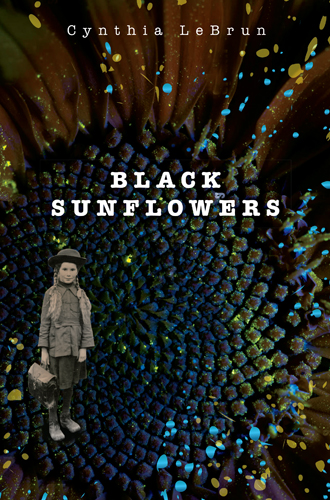I will die, I will die. And nobody will know my grave. And nobody will come and remember, Only the nightingale will sing. Inspired by a real-life story, Black Sunflowers illuminates one of the darkest
I will die, I will die. And nobody will know my grave. And nobody will come and remember, Only the nightingale will sing.
Inspired by a real-life story, Black Sunflowers illuminates one of the darkest times in Ukrainian history: the Holodomor or "death by hunger."
The book begins in 1928, in Soviet-occupied Ukraine, where Veronika and her family live on their farm in the close-knit village of Kuzmin. Life is good, despite the Soviet occupation, but soon everything they have known and loved is not just altered, but demolished.
Told in two voices — Veronika's and her father, Janek's — Black Sunflowers is a vivid account of the brutal realities of life in Ukraine under Stalin. Veronika and Janek's story is a haunting, yet uplifting testimony to the strength and humanity of the people of Ukraine.
Cynthia LeBrun grew up in Kelowna, British Columbia and studied to be a teacher at Simon Fraser University. She taught in a northern one-room schoolhouse west of Fort St. John, as well as the isolated logging camp of Phillips Arm, and finally in Campbell River. Black Sunflowers is inspired by the vivid memories of her mother-in-law, who grew up in Soviet Occupied Ukraine. Cynthia now lives and writes in the beautiful Comox Valley on Vancouver Island, where she enjoys time in her garden and being with her grandsons. Black Sunflowers is her first novel.
View Biographical note
"Told in Veronika's and her father Janek's alternating perspectives, this historical account is based on the experiences of the author's mother-in-law and is grounded in historical research. Janek's perspective gives voice to the violent brutality of Soviet rule and the heartbreak of trying to provide for one's family under an authoritarian regime, while Veronika's chapters offer moments of impish levity and youthful hope. A significant moment in Ukrainian history brought to light in an accessible, moving, and personal way."
— Kirkus Review
"This important, revealing story, portrays the suffering, but also the strength and resilience, of the Ukrainian people."
— Calgary Herald
"Cynthia LeBrun's Black Sunflowers is called a novel, but it has its feet firmly planted in the pitch-black reality of the Holodomor, the Soviet-engineered famine that is estimated to have killed up to five million Ukrainians… this book feels timely in a way all good historical fiction should. And as the bloody twentieth century recedes away from us, it's stories like this one that can put a human face on what would otherwise be a pile of grim statistics."
— The British Columbia Review
View Review quote
Review of Black Sunflowers
"Ukraine". Just that name brings to mind every possible horror that it's people are now suffering: from land mines to drones, from shelling to loved ones coming home in coffins, and this without consideration of the political shenanigans as the three year war continues.
So this is a perfect time to read Black Sunflowers by Cynthia LeBrun as we can not only lose ourselves in a gripping human story but also learn some of the tragic suffering of the Ukrainians in recent history which of course give the background to the present.
The author's Ukrainian mother-in-law came to Canada as a refugee after growing up in a village when that country was under Soviet occupation. Cynthia spent many hours talking to her mother-in-law to learn and understand the hardships she had endured. This book however is not an autobiography. Cynthia has chosen to use her knowledge to give an authentic background as she tells the story of a young girl growing up in the country. She does this in such a clever way that readers find it difficult to put the book down as they are eager to find out how young friendships and romances develop, whether little girls will be caught in their mischievous pranks, if the heroine will be able to realise her chosen career and the fate of the Russian agents living in the village.
Ukraine is now, and was then, an important cereal producer yet the farmers in this small village struggle to survive as more and more of their crops are taken by the Russians and they have to face increasing physical aggression. "Tightening belts" becomes starvation. This is a vital background yet the readers' attention is held by the heroine and her friends and family who are able to react to their fate in a very understandable and often understated way.
The arrival of the Naxi soldiers is welcomed as relief from oppression. With the benefit of hindsight readers know that they did not bring freedom and we wait anxiously to learn if and how the heroine and her family and friends survive the next occupation. They also wonder if Cynthia will "bring" her heroine to Canada.
Readers must wait for the publication of the sequel, which I for one, eagerly anticipate.
— Vivienne Steels UK reviewer
View Review text
